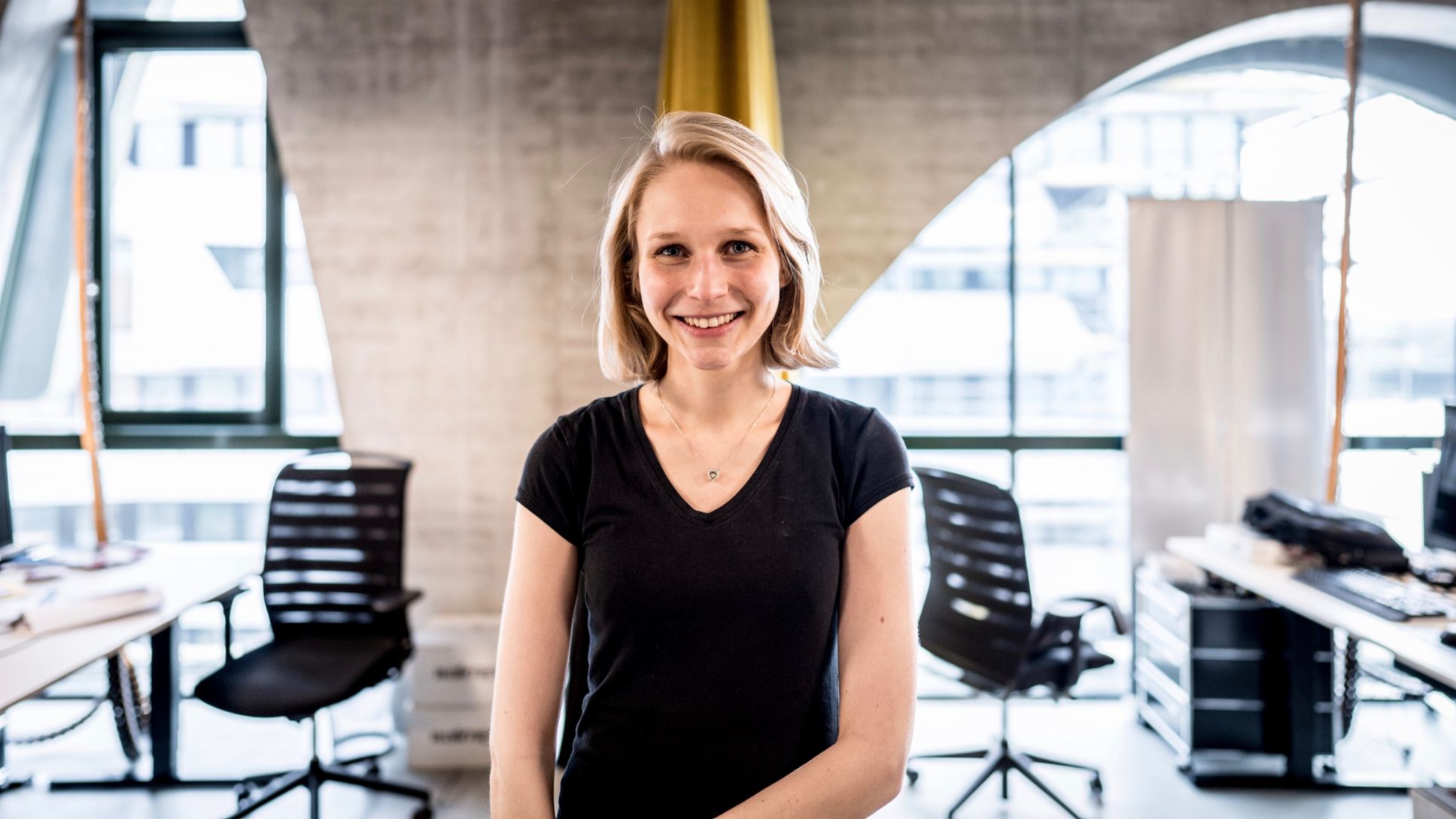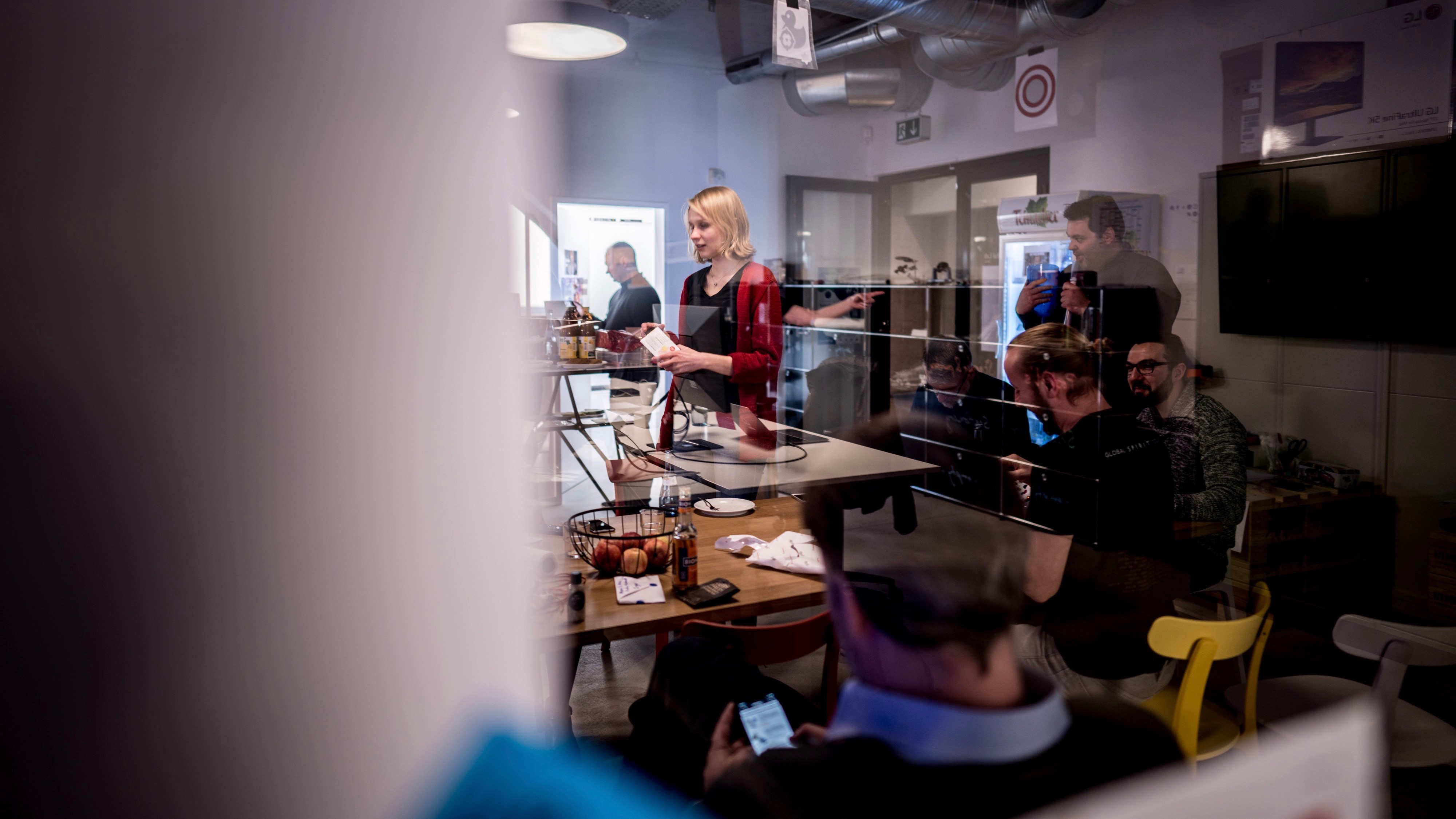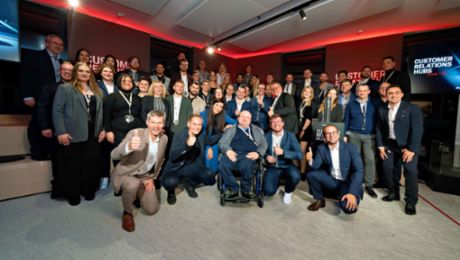The love for music was literally put into my cradle: My father is a theatre director, my mother a conductor, I play the violin, viola, and piano. As the scion of a family of musicians from Lübeck, it would not have been surprising for anyone if I had aspired to a career in the art and music scene. But things didn’t turn out as expected.
At the heart of Porsche: striving for perfection
Growing up, I was not only fascinated by music, but also by automobiles. As a kid, I loved to watch those sophisticated, powerful vehicles roam the streets. So, I began my studies in industrial and mechanical engineering at the Technical University of Berlin. Here, I worked at the intersection of business, the automotive industry and data science: What will tomorrow’s technologies and mobility look like? What role will the factory of the future play? Questions I wanted to pursue in practice.
Two years ago, my journey at Porsche began with an internship in production quality at the main plant in Zuffenhausen. Despite innovative technologies and increasing product complexity, at Porsche, quality means further increasing the quality level of every vehicle — not only in terms of technology, performance, and manufacturing quality but also in terms of design, feel, and attention to detail. Every new vehicle model is the result of this comprehensive understanding of quality and in many cases, a long-lasting result: more than two-thirds of all Porsche ever built are still on the road today.

Porsche Digital Lab: where innovation meets production complexity
This experience really hit a nerve — I wanted to shape the production of the future, to contribute to Porsche’s sophisticated aspirations by working at the intersection of innovation and production requirements. And which place would be more suitable for this than the Porsche AG think tank? At Porsche Digital Lab, a team of technology and software experts as well as scientists identifies, develops and tests new technological concepts — from idea finding and the construction of a Minimal Viable Product (MVP) through to a product in productive use. Thereby the focus remains on the applicability for the specialist departments.
After more than a year as a working student, I have now become one of the youngest members of the Porsche Digital Lab in August. As a Data Scientist, I work with my colleagues to advance digital product development at Porsche. How can we use innovations from the areas of AI, IoT, Blockchain and Quantum Computing in order to shape tomorrow’s production? We use data to gain insights into operational processes at Porsche and develop data-driven use cases. To bring our digital solutions together with the current challenges of the automotive industry, we need to closely exchange with the specialist departments and production areas of the Porsche plants. Therefore, I often work together with my colleagues in Leipzig and Stuttgart to test, configure and ultimately get the digital products in the factory.
The Porsche Digital Lab family
As a Data Scientist, Porsche Digital Lab offers me a playing field to pursue my fascination and curiosity for the innovations of the automotive industry, to refine and challenge my ideas. At the same time, I’m working with an international team of experts from whom I can learn much more than just on a professional level. Both in my family of musicians and during my stay abroad in Canada and New York, I learned one important lesson: To me, nothing is as valuable as the intercultural exchange between people, cultures, and countries. In this spirit, I am very looking forward to my future in the Porsche Digital Lab with this great team, learning how to orchestrate machines with data shaping the production of tomorrow.




